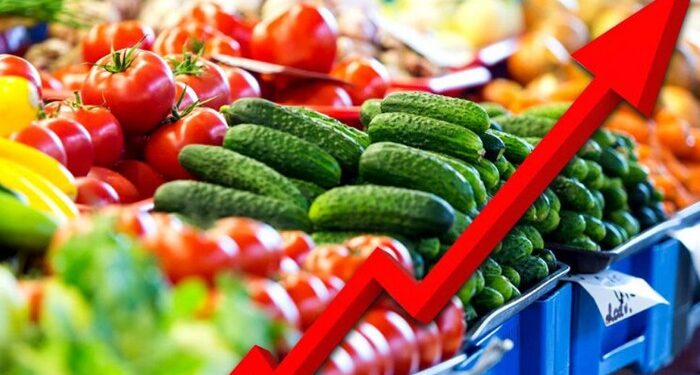As Nigeria battles high food inflation and rising cost of living, economic analysts and business owners are raising alarm over the growing role of non-state actors in driving up prices through illegal taxation and extortion of traders, transporters, and small business operators.
Across major commercial cities such as Lagos, Onitsha, Kano, and Port Harcourt, traders and transporters are being subjected to multiple unauthorised levies by touts, local gangs, and self-styled “union” enforcers operating outside the framework of government regulation.
Experts say these unlawful tolls are silently but significantly contributing to rising commodity prices.
“In many markets and motor parks, these actors impose levies that are not backed by any government law. The costs trickle down to the final consumer. It’s a hidden tax that fuels inflation,” said the CEO of the Centre for the Promotion of Private Enterprise (CPPE). Muda Yusuf.
At Mile 12 Market in Lagos, a vegetable seller, Amina Musa, said she paid at least five different fees daily before she could display her goods. “There is one levy for market entry, another for sanitation, one for loading, and two for union dues,” she lamented. “If you refuse, they’ll scatter your table or seize your goods. We are suffering.”
Transporters face a similar ordeal. From inter-state drivers to commercial motorcycle and tricycle riders, illegal checkpoints operated by touts masquerading as transport unions now dot many routes across the country.
“I pay no fewer than 10 different fees between Kano and Aba. Some are as high as N3,000 at each stop. At the end, we add all this to the transport cost, and prices of goods go up,” said Sunday Chukwuma, a truck driver.
A procurement manager of a company in Agbara, Ogun State, who pleaded anonymity, lamented that it costs more than N500,000 at times to convey goods from the Apapa Port area of Lagos to Agbara Industrial Zone in Ogun State, citing levies collected by non-state actors.
“You can’t do anything else but to oblige because if you decide to escalate the matter to higher authorities, your goods may perish if they are perishable, or your production may be delayed and these affect production deadlines. We have no option but to pass such costs on to the consumers of our products; it’s a sad reality,” he said.
A coaster bus driver, who plies the Okoko Mile 2 route in Lagos, on which commuters are charged N500 per seat, told this medium that were it not for the activities of the non-state actors, the normal fare would be about N300.
The agberos (touts) are the cause of the high costs of transportation in the country, he said.
A trailer driver, Adama, also told this medium that he spends more than N10,000 to convey a truckload of goods from one part of Lagos to the other at night, paying unreceipted N1,000 at every checkpoint.
The National Bureau of Statistics (NBS) reported Nigeria’s inflation at 22.22 percent in June 2025, with food inflation at 28.28 percent. While monetary policies, exchange rate instability, and energy costs are key drivers, illegal levies remain an overlooked pressure point.
“These informal actors operate with impunity. They not only distort market prices but also erode investor confidence and deepen poverty,’ said a retired economist from Lagos State University (LASU), Dr. Olusegun Olaleye.
Businesses want agberos checked
Business groups have called for urgent intervention to check the activities of touts.
“We need enforcement against these criminal activities. Government agencies must stop turning a blind eye. These extortions are killing businesses,” said a trader in Agege in Lagos, Agnes Erute.
The Federal Ministry of Trade and Investment acknowledged the challenge and said measures are underway to sanitise market operations.
Dr. Muda Yusuf and a development economist at Adeleke University, Professor Tayo Bello, have hinted that the New Tax Law may take care of some of these anomalies when the time for enforcement arrives.
Yet, observers said enforcement had historically been weak due to political patronage and the complicity of some security personnel.
“The state must reassert control over economic spaces. When non-state actors replace the government in tax collection, inflation becomes the price everyone pays,’ Dr. Olaleye added.
For now, traders like Amina and drivers like Sunday continue to pass the burden to consumers, feeding a vicious inflationary cycle that may continue for a long time to come.



